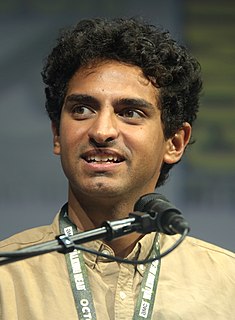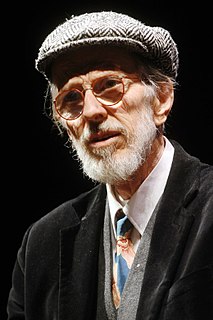A Quote by Chitra Banerjee Divakaruni
I moved here when I was 20 to go to college. After I moved here, I became much more aware of the importance of the culture and literature to my life. Sometimes when you're immersed in something, you just don't notice it very much. Moving away makes you appreciate your culture. Living here, I've thought more and more about India, and what being Indian-American means to me. And it's made me incorporate things from Indian literature into my own writing.
Quote Topics
About
After
American
Appreciate
Appreciate You
Aware
Away
Became
Being
College
Culture
Go
Immersed
Importance
Incorporate
India
Indian
Just
Life
Literature
Living
Made
Makes
Me
Means
More
More And More
Moved
Moving
Moving Away
Much
My Life
My Own
Notice
Own
Something
Sometimes
Things
Thought
Very
Writing
Your
Related Quotes
And there is also the paradox that the dominating culture imbues the Indian past with great meaning and significance; it is valued more because it is seen as part of the past. And it is the romantic past, not the present, that holds meaning and spiritual significance for so many members of the dominating culture. It has seemed so strange to me that the larger culture, with its own absence of spirit and lack of attachment for the land, respects these very things about Indian traditions, without adopting those respected ways themselves.
We're at an interesting phase of Asian and Asian-American writing, where we might succeed in having readers look at us as creative individuals who write with fury and fire about the world, and in new ways, without having them say things like "I read a really good Indian book," or "That Malaysian fellow writes very well." So I hope by identifying as Indian I can get people who don't usually read "ethnic" or "Indian" literature to read that literature and enjoy it.
As a kid growing up in the 1950s I became acutely aware of the changes taking place in American culture and I must say I didn't much like it. I witnessed the debasement of architecture, and I could see a decline in the quality of things like comic books and toys, things made for kids. Old things seemed to have more life, more substance, more humanity in them.
There is something about the light, the heat (physical and perhaps metaphysical), the vibrancy of street life, and the rawness and disjointedness of much of the tropical world that has moved and disturbed me - in places where the indigenous culture is often transformed by an external northern culture (sometimes my own... I suspect that one has a few serious creative obsessions in life. I certainly cannot seem to escape this one.
In the beginning the church was a fellowship of men and women centering on the living Christ. Then the church moved to Greece where it became a philosophy. Then it moved to Rome where it became an institution. Next, it moved to Europe, where it became a culture. And, finally, it moved to America where it became an enterprise.
For my parents' generation, the idea was not that marriage was about some kind of idealized, romantic love; it was a partnership. It's about creating family; it's about creating offspring. Indian culture is essentially much more of a 'we' culture. It's a communal culture where you do what's best for the community - you procreate.
Coming back to America was, for me, much more of a culture shock than going to India. The people in the Indian countryside don't use their intellect like we do, they use their intuition instead, and their intuition is far more developed than in the rest of the world. Intuition is a very powerful thing, more powerful than intellect in my opinion. That's had a big impact on my work.
It has seemed to me that literature, as I meant it, was embattled, that it was increasingly difficult to find writing doing what I thought literature should do - which was simply to push people into changing their ideas about the world, and to go further, to encourage us in the work of changing the world, to making it more just and more truly human.


































